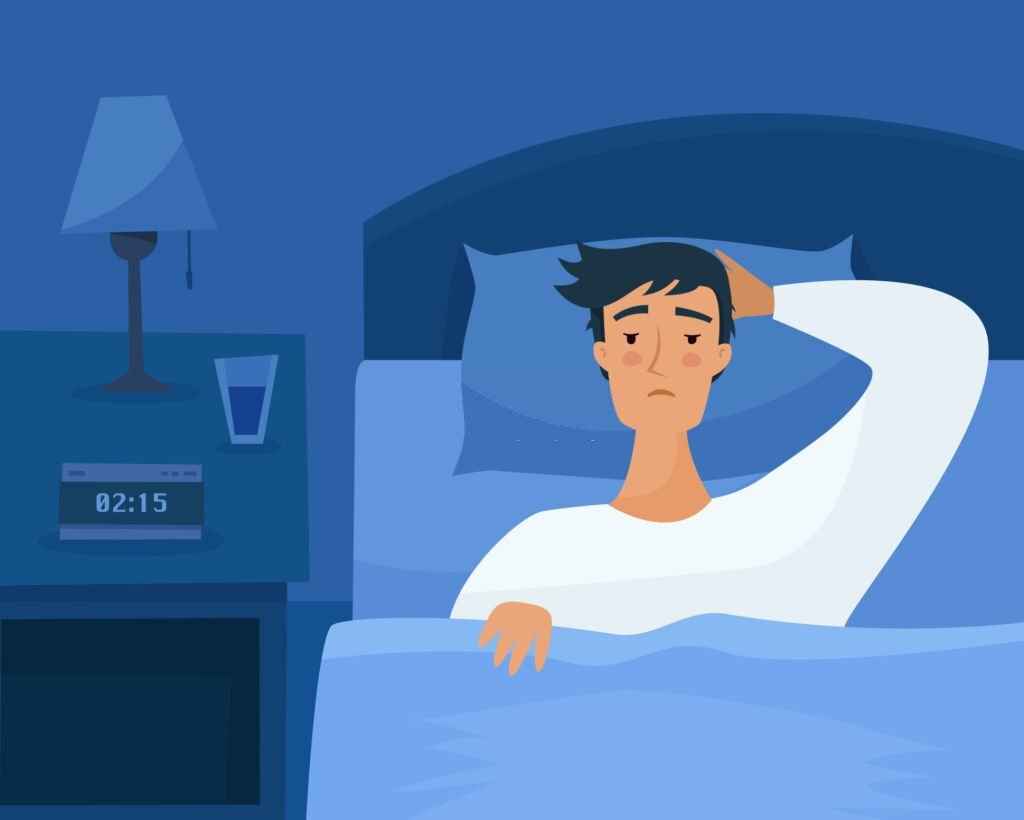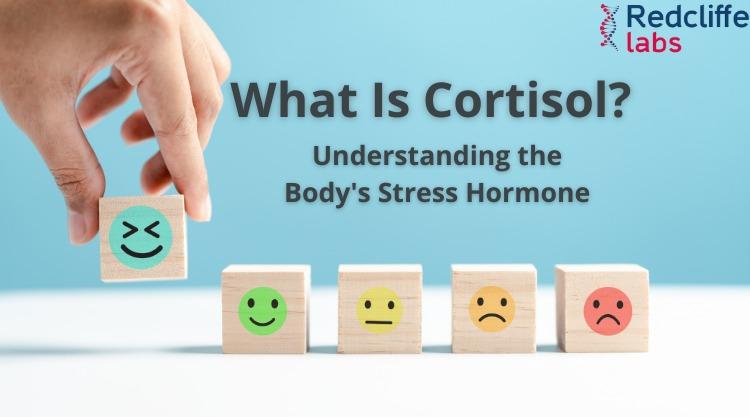5 Types of Sleep Disorders: Symptoms, Causes, and Treatments

Medically Reviewed By
Dr Divya Rohra
Written By Prekshi Garg
on Apr 28, 2022
Last Edit Made By Prekshi Garg
on Jan 27, 2025

The most basic human need is sleep. Have you ever noticed yourself being lazy and inactive, if you don’t sleep adequately at night? Have you experienced a continuous headache in the morning, if your sleep wasn’t proper at night? All this happens because our body needs rest and sleep to function properly continuously. With the increasing stress and work pressure in today’s time, sleep disorders are very common. So, in this article let us explore the different types of sleep disorders prevalent, what is insomnia, its types, its symptoms, causes, and treatment. Also, we will discuss some lifestyle modifications that you can do in your daily regime to relieve the symptoms of insomnia and get your sleep-wake cycle on track.
What are the types of sleep disorders?
Sleep disorders refers to a group of conditions that interfere with your normal sleep cycle and makes it difficult to have a sound and good sleep regularly, that is, this condition negatively affects your sleep. Sleep disorders are a significant health issue as they hamper your functioning and activity the whole day. There are majorly 5 types of sleep disorders. These include:
Restless legs syndrome (RLS)
RLS is a condition wherein an unpleasant sensation leads to shaking and moving of your legs, that generally happens during nighttime. The shaking of legs makes it difficult for the concerned person to fall asleep. This condition can occur in people of all ages, however, it is more common in adults and worsens as you age.
Insomnia
Insomnia is a condition characterised by difficulty in falling asleep or staying asleep for a long time. If you often find yourself struggling to fall asleep, irrespective of how tired and sleepy you are, then this is known as insomnia. Insomnia can be short-term, that is, acute or long-term, that is, chronic.
Sleep apnea
Sleep apnea refers to the inability to sleep properly at night due to interruptions in your breathing. These interruptions like taking pauses while breathing or having shallow breaths can lead to sudden waking up at night. If sleep apnea remains undiagnosed and untreated, it may lead to high blood pressure and heart attack. Sleep apnea can be of three types: obstructive sleep apnea, central sleep apnea and complex sleep apnea syndrome.
Obstructive sleep apnea
This type of sleep apnea occurs when your throat muscles relax leading to a blockage in your airway.
Central sleep apnea
This type of sleep apnea occurs when your brain does not function properly, that is, your brain fails to send signals to your airway for breathing.
Complex sleep apnea syndrome
This syndrome is a mixture of the other two types of sleep apnea, that is, obstructive sleep apnea and central sleep apnea. Therefore, in this condition, both your airways and brain do not function properly.
REM Sleep Behaviour Disorder (RBD)
RBD is a sleep disorder wherein your body lacks the state of paralysis that is normally present during the REM phase of your sleep. The lack of a paralysis state enables you to act out your dreams, which can be simple, violent or dramatic.
Narcolepsy
If you face excessive and uncontrolled sleepiness and drowsiness during the daytime, then this condition is known as narcolepsy. This is characterised by sudden and random attacks of sleep during the day. Narcolepsy causes difficulty for the person to stay awake and active during the day.
What is insomnia?
Insomnia refers to the difficulty in falling or staying asleep during the night that hampers your day time activity is known as insomnia as per the American Academy of Sleep Medicine. Insomnia may be experienced by people at any age. According to the American academy, insomnia can be of different types. These include:
Chronic insomnia disorder
It refers to a long-term disorder that may extend for more than three months to years. In this disorder, a person may experience difficulty in sleeping for three or more days a week. Long-term insomnia can cause distress as it hampers the daily activities of the individual.
Short-term insomnia
Short-term insomnia occurs for less than 3 months and is less frequent in a week. In short-term insomnia, you might have difficulty in sleeping and experience symptoms just like chronic insomnia. If short-term insomnia persists for months, it might get converted to chronic insomnia.
Paradoxical insomnia
It is a condition wherein the person feels that they have difficulty in sleeping or disturbed sleep. However, there are no other test reports that confirm your difficulty in sleeping. With paradoxical insomnia, people often underestimate the quality and quantity of their sleep.
Sleep maintenance insomnia
It is a condition wherein you are unable to maintain the quality of sleep throughout the night, that is, you experience interrupted sleep at night. This type of insomnia is often found in middle aged people and elderly.
Fatal insomnia
Fatal insomnia refers to a rare neurological genetic disorder, known as fatal familial insomnia, that leads to progressive brain damage. The disorder is characterized by severe sleep difficulties.
What are the symptoms of insomnia?
There are various factors that can indicate insomnia. If you experience any one or more of the following symptoms, make sure to get an appropriate treatment for yourself. Also, try inculcating the lifestyle and dietary modifications discussed later on in the article to get better quality sleep. The various symptoms of insomnia include:
- Changes in your mood, that may include depression, irritation and anxiety
- Changes in your behaviour during the daytime like fatigue, poor concentration, decreased focus, and feeling sleepy all day
- You might have low energy top work during the day
- Gastrointestinal symptoms are also an indication of insomnia
- You might observe yourself making more errors and accidents due to lack of concentration throughout the day
- You might worry or feel anxious about sleeping during the night
- Constant tension or headache is also an important symptom of insomnia
- If you start using alcohol or sleeping pills to fall asleep
- You face difficulty in socialising with people or working and studying.
Who is more prone to insomnia?
A certain group of people are more likely to develop insomnia. The people who are at a higher risk of insomnia include:
- People whose work involves varied shifts that may even change abruptly
- People who travel across different time zones.
- Elderly people are at a higher risk of developing insomnia
- People who indulge in excessive caffeine, drugs, medicines, and alcohol.
- People who have experienced significant life events in the past or present.
- People who have a family history of insomnia.
- Females in general are at a higher risk of developing insomnia. However, pregnant women or the women going through menopause are comparatively more prone to insomnia
- People who have adverse mental or physical health conditions are also more likely to develop insomnia.
What are the causes of insomnia?
Insomnia can be caused due to an underlying health condition or may act as a symptom for any other disease. There are various reasons which may lead to insomnia in people.
Work schedule
Your work schedule has a large impact on your sleep-wake cycle. It disturbs your internal clock, that is, circadian rhythm. If you have odd or long working hours, your circadian rhythm might get disturbed leading to insomnia. This may also happen due to early shifts, frequently changing shifts, and long travel hours.
Stress
Stress is one of the major reasons for insomnia. Whether it is work, health, school, family or finances, any stress can keep your mind active all night, making it difficult for you to have a sound and good sleep all night.
Having dinner too late or too much in the evening
Light snacking at night is acceptable, but it is found that too much eating in the night or before going to bed makes it uncomfortable for your body to lie down. Too much food at night may also cause heartburn and acid reflux that can keep you awake all night.
Poor sleeping habits
Good sleeping habits are essential. If you have poor sleeping habits like an irregular sleeping schedule, uncomfortable sleep environment and naps before bedtime you might experience insomnia. Also, using excessive screen, that is, TV, smartphones or laptop before sleep also leads to interference in your sleep cycle. Therefore, it is always advised that you should not indulge in screen activities just before sleeping and should also avoid watching TV or eating on your bed that can hamper the quality of your sleep.
Medicines
There are certain medicines that interfere with your sleeping pattern, leading to either increased sleep throughout the day that disturbs your sleep-wake cycle or may keep you wide awake all night. These medicines include antidepressants, over the counter painkillers, cold medicines, weight loss products, and medicines used for treating asthma, blood pressure, and allergies. According to the American Association of Retired Persons, medicines like corticosteroids, alpha and beta-blockers, statins, selective serotonin reuptake inhibitor (SSRI), angiotensin-II receptor blockers (ARBs), angiotensin converting enzyme inhibitors (ACE), non sedating H1 agonists, cholinesterase inhibitors, and glucosamine and chondroitin combinations can also cause insomnia.
Health condition
Insomnia has also been found to be linked with certain health conditions like diabetes, cancer, chronic pain, asthma, heart disease, gastroesophageal reflux disease (GERD), Alzheimer’s disease, Parkinson’s disease and hyperthyroidism. Mental health disorders like those linked with anxiety, for example, post traumatic stress disorder can also hamper the duration and quality of your sleep.
Age
Insomnia is found more commonly in elderly people. You may experience some changes in your sleep pattern as you grow old. You might become more restless, which causes your sleep to break with even minimal noise in your surroundings. Your internal clock also changes with age, and you tend to feel tired early in the evenings which makes you sleep early and wake up early as well. The changes in your daily activity also determine the quality of your sleep. Therefore, you tend to become less active as you age, which leads to poor quality sleep.
Environmental conditions
The environment in your room can also disturb your sleep. This includes the temperature of your room, that is, if your room is too cold, or hot or noisy. Also, if your bed is uncomfortable, then you might get disturbed sleep at night.
Physical exercise
Your daily activity is also crucial for determining the quality of your sleep. If you are involved in too little physical activity, you might have a poor quality of sleep.
Hormonal changes
The fluctuations in the levels of your hormone, especially during the menopause can lead to night sweats. Night sweats make it difficult for the person to sustain their quality of sleep.
How can insomnia be treated?
If insomnia occurs due to some underlying health condition, the treatment of the underlying health condition is important to treat insomnia. The symptoms of insomnia should also be taken care of for the complete treatment of sleep disorder. There are other things as well that you can do to treat insomnia.
Counselling
Insomnia can often be psychological, that is, it might be caused due to trauma or stress. Therefore, counselling of patients suffering from insomnia can help them get relief from their trauma, depression, anxiety, or stress. This will help in bringing back the circadian cycle on track.
Cognitive behavioural therapy (CBT)
CBT is a short-term therapy that can help you in exploring and adopting new behavioral patterns that can lead to changes in thought, bringing your sleep-wake cycle back on track. CBT is recommended as an initial treatment of insomnia by the American College of Physicians.
Medicines
If you feel that your insomnia is not due to psychological or behavioural reasons, and might be because of a health disorder, it is better to consult a doctor. Your doctor might prescribe you some medicines, over the counter sleeping aids or melatonin that can help in regulating your sleep cycle.
What home care remedies can help in treating insomnia?
You can get relief from insomnia nad ca also bring your sleep-wake cycle back on track by making some changes in your daily routine. Certain modifications in your daily regime, lifestyle and diet can also help you get relief from the symptoms of insomnia.
Sleeping habit
Certain sleeping habits that you must adopt to treat insomnia include
- Set a daily routine of going to bed and waking up
- Avoid use of screen devices just before you go to bed
- Wind up your day at least an hour before you go to bed.
- Maintain a comfortable room temperature and light.
Dietary changes
Some common mistakes in your diet plan can also lead to insomnia. A healthy diet can help you get better sleep. Here are certain do’s and don'ts that you should follow to avoid insomnia:
- Do not go to bed hungry
- Do not have a heavy meal 2-3 hours before your scheduled bedtime.
- Limit your intake of alcohol and caffeine, especially at night.
- Try taking a healthy snack before you go to bed.
Activity
Indulging in certain well-being and relaxation patterns can also help in relieving insomnia. This includes:
- Regular exercise, however, you should not exercise at least 4 hours before your bedtime.
- Include breathing and relaxation exercises in your regime before you go to bed.
- Soothing music or reading a book can also help you have a good quality sleep.
- Do not take a nap during the daytime as it can affect your night sleep.
Takeaway
Insomnia is a health condition that not only affects your night routine but also disturbs your efficiency at the workplace. The condition might lead to poor performance and also hamper with your career growth. Insomnia also affects your behaviour, mood and physical well-being. Therefore, it becomes utmost important to treat insomnia at the right time. Following a strict night routine and making changes to your lifestyle and diet can help you attain good quality and uninterrupted sleep at night. Now that you know the major symptoms of insomnia, group of people who are more prone to insomnia, the factors that can cause insomnia, how you can treat insomnia at home and whether or not you require medical consultation, you are a ta better position to understand your symptoms and attain a better quality sleep yourself.
Frequently Asked Questions (FAQs)
-
Is having irregular sleep dangerous?
Yes, irregular sleep can be dangerous as it interferes with your concentration and focus during the daytime, ultimately affecting your progress in your career. -
How many hours of sleep is considered insomnia?
If you sleep for less than 5 hours at night or if you have interrupted sleep at night, then it is considered insomnia. -
What is the main cause of insomnia?
There are various causes of insomnia like stress, age, abrupt working schedule, physical activity and the type and quantity of food intake.
Leave a comment
1 Comments
Insomnia treatment
Jul 27, 2024 at 10:20 AM.
People who are suffering from insomnia surely have reasons like stress, anxiety, depression, improper sleeping habits, mental health problems, etc for their insomnia. one must treat the disorder with proper insomnia treatment and medicines to enjoy a healthy and stable life.
MyHealth Team
Jul 27, 2024 at 10:35 AM.
Absolutely, you’re right. Insomnia is often linked to factors like stress, anxiety, depression, and poor sleeping habits. It's crucial to address these underlying issues and seek appropriate treatment for insomnia, which may include therapy, lifestyle changes, and medications. Doing so can greatly enhance your sleep quality, leading to a healthier and more stable life.



